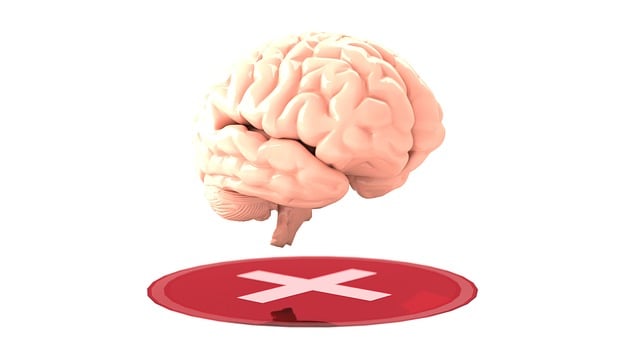Mental wellness involves managing stress, cultivating positive relationships, and building resilience through self-care practices like mindfulness, exercise, and journaling. In Longmont, couples facing communication issues or crises can benefit from professional therapy, integrating crisis intervention and conflict resolution techniques. Personalized self-care routines, focused on mental wellness, are transformative tools for navigating relationship challenges, offering a proactive approach to emotional well-being alongside Longmont Couples Communication Issues Therapy. Prioritizing self-care is crucial for maintaining balance during crises, enhancing mental wellness, and buffering against life's stressors.
Mental wellness is paramount for overall health, and establishing a self-care routine can be transformative. This article guides you on a journey to enhance your mental well-being through self-care rituals tailored to your unique needs. We’ll explore strategies from understanding the significance of mental wellness to identifying personal preferences that fuel your self-care practice. Learn about essential components for a balanced routine and discover how Longmont Couples Communication Issues Therapy facilitates maintaining harmony in your life.
- Understanding Mental Wellness and Self-Care
- Identifying Personal Needs and Preferences
- Crafting a Routine: Essential Components
- Integrating Self-Care into Daily Life
- The Role of Longmont Couples Communication Issues Therapy in Maintaining Balance
Understanding Mental Wellness and Self-Care

Mental wellness is a fundamental aspect of overall well-being, encompassing our emotional, psychological, and social health. It involves managing stress, maintaining positive relationships, and cultivating a sense of purpose and resilience in the face of life’s challenges. For many individuals dealing with issues like conflict in relationships or crisis situations, seeking guidance from professionals can be transformative. Longmont Couples Communication Issues Therapy, for instance, offers specialized support to couples navigating communication barriers and understanding their emotional connections.
Self-care is an integral part of mental wellness, focusing on practices that nurture and rejuvenate the mind and spirit. It involves taking proactive steps to manage stress, improve mood, and enhance overall well-being. By integrating self-care routines, individuals can develop effective coping mechanisms, improve conflict resolution techniques, and engage in emotional healing processes. Crisis Intervention Guidance, a crucial component of mental health support, equips people with tools to handle immediate distress, while Conflict Resolution Techniques teach valuable skills for navigating interpersonal challenges.
Identifying Personal Needs and Preferences

Developing a mental wellness self-care routine starts with introspection and identifying your unique needs. Every individual’s journey to mental well-being is different, so it’s essential to reflect on what brings you comfort, joy, and peace. This could involve listening to your instincts and paying attention to patterns in your mood and behaviors. For instance, some people might find solace in creative outlets like painting or writing, while others may prefer physical activities such as yoga or hiking.
In Longmont, where couples often face communication issues that may lead to therapy, self-care can also involve setting boundaries and prioritizing personal time. Engaging in regular practices that nurture your mental fortitude, like mindfulness meditation or keeping a gratitude journal, can be transformative. Additionally, leveraging community outreach programs focused on inner strength development and stress management can provide valuable support networks, ensuring individuals feel empowered to take charge of their mental health and overall well-being.
Crafting a Routine: Essential Components

Crafting a mental wellness self-care routine is a powerful tool for individuals seeking to address and overcome Longmont couples communication issues or personal therapy challenges. It involves intentional actions designed to nurture your mind, promote emotional well-being, and enhance overall life satisfaction. When developing this routine, consider incorporating key components that align with Mind Over Matter principles, as these can significantly boost your confidence and resilience.
Start by identifying activities that resonate with your unique needs and preferences. This might include practices such as mindfulness meditation, regular exercise, journaling, or engaging in creative outlets. Ensure that your self-care routine is balanced and consistent. Incorporate techniques that support emotional regulation, like deep breathing exercises or cognitive reframing. By integrating these practices into your daily or weekly schedule, you’re taking proactive steps towards improving both mental clarity and emotional stability, which are essential for navigating Longmont couples communication issues effectively in therapy.
Integrating Self-Care into Daily Life

Incorporating self-care into your daily routine is a powerful step towards enhancing mental wellness, especially for those navigating Longmont couples communication issues or therapy. It’s not just about taking time for yourself; it’s about cultivating practices that nurture your mind and emotional well-being. By integrating self-care, you create a buffer against life’s stressors and challenges, including relationship problems often requiring Longmont Couples Communication Therapy.
This can take many forms, from dedicated ‘me time’ to engage in hobbies, regular physical activity, or mindfulness practices. The key lies in consistency—making these activities part of your everyday schedule, just like any other important appointment or commitment. Adopting the mind over matter principles can help you realize that prioritizing self-care is not a luxury but a necessity for maintaining balance and resilience, especially during crises where effective crisis intervention guidance might be required.
The Role of Longmont Couples Communication Issues Therapy in Maintaining Balance

Maintaining a balanced mental wellness routine is a holistic process that often requires addressing underlying issues and learning effective coping mechanisms. This is where Longmont Couples Communication Issues Therapy steps in as a powerful tool. By focusing on improving communication skills, couples can navigate conflicts more constructively, fostering an environment of understanding and support.
The therapy provides a safe space to explore the root causes of communication breakdowns, offering guidance on conflict resolution techniques that strengthen bonds. Additionally, mental wellness journaling exercises, encouraged during and between sessions, help individuals process their thoughts and emotions, leading to increased self-awareness. Even listening to a well-produced mental wellness podcast series can supplement this journey by sharing inspiring stories and practical tips for maintaining mental balance.
Developing a mental wellness self-care routine is a transformative journey, and Longmont Couples Communication Issues Therapy offers valuable insights. By understanding your unique needs and integrating essential components into daily life, you can foster resilience and overall well-being. Remember, consistency is key; regular practice enables you to navigate life’s challenges with balance and clarity. This personalized approach to self-care ensures that you’re not just managing symptoms but nurturing a thriving mind and spirit.













